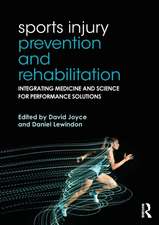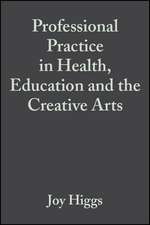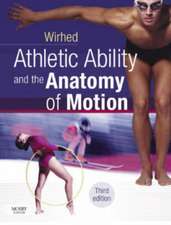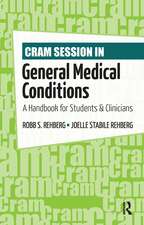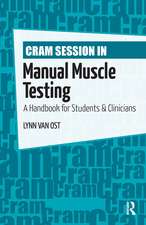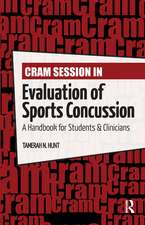Clinical Reasoning in the Health Professions
Editat de Joy Higgs, Gail M. Jensen, Stephen Loftus, Nicole Christensenen Limba Engleză Paperback – 18 oct 2018
Key themes presented:
- Clinical reasoning as a composite of encultured capabilities
- Clinical reasoning embedded within situated practice including the wider socio-economic and political contexts, the practitioner's and the client's contexts, and shared goals such as promoting health communities
- The importance of narratives, language and culture in clinical decision making
- Changing reasoning practices linked to increasing autonomy of practitioners working without the requirement of medical referrals
- Clinical reasoning as an increasingly team-based practice, including shared decision making with clients
- The need for sound strategies and tools to facilitate the expanding collaborations in health care across disciplines and with clients and carers
- Advanced education approaches promoting expansion and enhancement of reasoning strategies
- The importance of building good practices for learning clinical reasoning into curricula and into students' own practice development approaches
- Strengthening links between orthodox and complementary medicine reasoning practices
- All chapters updated and 20 new chapters added
- Concrete examples, cases and vignettes were added to bring discussions to life for the reader
- Reflection points strategically placed to assist readers to extend their insights and build learning from their own practical experiences and theoretical knowledge
- Devices of particular value to reflective practitioners and educators.
Preț: 311.75 lei
Preț vechi: 438.99 lei
-29% Nou
Puncte Express: 468
Preț estimativ în valută:
59.66€ • 61.55$ • 50.49£
59.66€ • 61.55$ • 50.49£
Carte disponibilă
Livrare economică 05-19 februarie
Livrare express 28 ianuarie-01 februarie pentru 168.56 lei
Preluare comenzi: 021 569.72.76
Specificații
ISBN-13: 9780702062247
ISBN-10: 0702062243
Pagini: 532
Ilustrații: Illustrated
Dimensiuni: 191 x 235 x 25 mm
Greutate: 1.16 kg
Ediția:4
Editura: Elsevier
ISBN-10: 0702062243
Pagini: 532
Ilustrații: Illustrated
Dimensiuni: 191 x 235 x 25 mm
Greutate: 1.16 kg
Ediția:4
Editura: Elsevier
Cuprins
Section 1 Understanding clinical reasoning
- Clinical reasoning: Challenges of interpretation and practice in the 21st century
- Re-interpreting clinical reasoning: A model of encultured decision making practice capabilities
- Multiple spaces of choice, engagement and influence in clinical decision making
- Clinical reasoning and models of practice
- The development of clinical reasoning expertise
- Expertise and clinical reasoningSection 2 The changing context of clinical reasoning and practice
- The context of clinical reasoning across the health professions in the 21st century
- Changing demographic and cultural dimensions of populations: Implications for healthcare and decision making
- Clinical thinking, client expectations and patient-centred care
- Next generation clinical practice guidelines
- Action and narrative: Two dynamics of clinical reasoning
- The language of clinical reasoning
- Evidence-based practice and clinical reasoning: In tension, tandem or two sides of the same coin?
- Methods in the study of clinical reasoningSection 3 Collaborative and transdisciplinary reasoning
- Collaborative decision making in liquid times
- Ethical reasoning
- Shared decision making in practice
- Using decision aids to involve clients in clinical decision making
- Clinical decision making, social justice and client empowerment
- Clinical decision making across orthodox and complementary medicine fieldsSection 4 Clinical reasoning and the professions
- Clinical reasoning in medicine
- Clinical reasoning in nursing
- Clinical reasoning in physiotherapy
- Clinical reasoning in dentistry
- Clinical reasoning in occupational therapy
- Clinical decision making in emergency medicine
- Clinical decision making in paramedicine
- Clinical decision making in optometry
- Clinical reasoning in dietetics
- Clinical reasoning in pharmacySection 5 Teaching clinical reasoning
- Pedagogies for teaching and learning clinical reasoning
- Teaching clinical reasoning in medical education courses
- Teaching clinical reasoning in nursing education
- Speech-language pathology students: Learning clinical reasoning
- Clinical reasoning and biomedical knowledge: Implications for teaching
- Cultivating a thinking surgeon, using a Clinical Thinking Pathway as a learning and assessment process: ten years on
- Interprofessional programs to develop clinical reasoning
- Assessing clinical reasoningSection 6 Learning clinical reasoning+
- Learning to communicate clinical reasoning
- Developing clinical reasoning capability
- Remediating learning and performance of clinical reasoning in medicine
- Learning about factors influencing clinical decision making
- Learning reasoning using simulation
- Learning to use evidence to support decision making
- Learning to research clinical reasoning
- Learning clinical reasoning across cultural contexts
- Peer learning to develop clinical reasoning abilities


